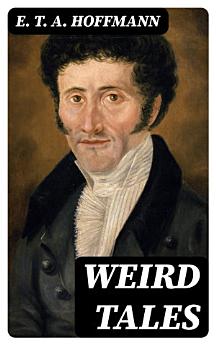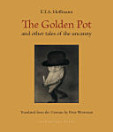Weird Tales
Nov 2022 · DigiCat
Kitabu pepe
563
Kurasa
family_home
Kimetimiza masharti
info
reportUkadiriaji na maoni hayajahakikishwa Pata Maelezo Zaidi
Kuhusu kitabu pepe hiki
E. T. A. Hoffmann's "Weird Tales" emerges as a quintessential collection of gothic and fantastical narratives, blending elements of the macabre with the enchanting. Hoffmann's stylistic prowess is evident in his intricate prose, where he masterfully intertwines psychological depth with surreal, often dreamlike settings. This anthology, rich in themes of duality and the irrational, positions itself within the Romantic literary movement, echoing the era's fascination with the uncanny and the subconscious. Readers will encounter a world where reason falters, yielding to the whims of imagination and the supernatural, exemplifying Hoffmann's knack for creating compellingly eerie atmospheres. E. T. A. Hoffmann, a pivotal figure in German literature, drew from his diverse background as a composer, jurist, and visual artist, imbuing his works with a multifaceted perspective on human experience. His own struggles against societal norms and personal adversities heavily influenced his exploration of the uncanny. Hoffmann's unique ability to capture the intersection of reality and fantasy reflects his profound engagement with the complexities of the human psyche, making his work a critical precursor to modern horror and fantasy literature. For those intrigued by the interplay of dreams, madness, and the bizarre, "Weird Tales" stands as a mesmerizing introduction to Hoffmann's literary genius. This collection will resonate with readers seeking a deep dive into the depths of human emotion intertwined with the extraordinary, solidifying Hoffmann's legacy as a master of the weird and the wonderful. Engage with these tales, and prepare to be transported to realms both familiar and unsettling.
Kuhusu mwandishi
Ernst Theodor Amadeus Hoffmann, commonly known as E. T. A. Hoffmann, was a multifaceted German artist, who left an indelible mark on the literary world during the Romantic period. Born on January 24, 1776, in Königsberg, Prussia (now Kaliningrad, Russia), he thrived as a jurist, composer, and music critic, but he is best remembered for his prolific contributions to Gothic fiction and fantasy. Hoffmann's narratives often explore the macabre, the supernatural, and the psychological, weaving a tapestry of the uncanny that has influenced many subsequent writers and thinkers in the genre. His collection 'Weird Tales' ('Die Serapionsbrüder'), published between 1819 and 1821, encapsulates his signature fantastical style with tales that are at times whimsical and at others, deeply unsettling. Hoffmann's ability to interlace reality with the fantastical, as exemplified in his other works like 'The Nutcracker and the Mouse King' and 'The Sandman', cemented his reputation as a master of the fantastic tale and an early pioneer of the genre that would eventually evolve into modern fantasy and science fiction. His legacy persists through the literary term 'Hoffmannesque,' used to describe works with similar qualities of the surreal and bizarre that are characteristic of his storytelling. Hoffmann's influence extends beyond literature into the realms of psychology and music, affecting figures such as Sigmund Freud and Jacques Offenbach, illustrating the enduring impact of his strange and enchanting tales.
Kadiria kitabu pepe hiki
Tupe maoni yako.
Kusoma maelezo
Simu mahiri na kompyuta vibao
Sakinisha programu ya Vitabu vya Google Play kwa ajili ya Android na iPad au iPhone. Itasawazishwa kiotomatiki kwenye akaunti yako na kukuruhusu usome vitabu mtandaoni au nje ya mtandao popote ulipo.
Kompyuta za kupakata na kompyuta
Unaweza kusikiliza vitabu vilivyonunuliwa kwenye Google Play wakati unatumia kivinjari cha kompyuta yako.
Visomaji pepe na vifaa vingine
Ili usome kwenye vifaa vya wino pepe kama vile visomaji vya vitabu pepe vya Kobo, utahitaji kupakua faili kisha ulihamishie kwenye kifaa chako. Fuatilia maagizo ya kina ya Kituo cha Usaidizi ili uhamishe faili kwenye visomaji vya vitabu pepe vinavyotumika.








